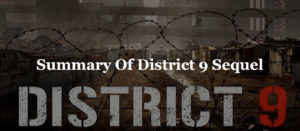The Glass Castle Summary
The Glass Castle book was written by Jeannette Walls in 2005. The primary theme of this book highlights family life and poverty. It reflects the living of Jeannette Walls and her siblings in poverty and the dream of her father to build a beautiful house for his family. Jeannette Walls had a poor childhood, and she had to face heat, cold, hunger, and poverty.
However, she managed to find peace and solace with her siblings even in those days when it was evident to her that she cannot depend upon her parents anymore.
In simple words, it is good to say that the book of Jeannette Walls had three major themes, including illusion, disillusion, and growing up, and this book targets her story from her childhood to adulthood (Fike, 2018). Another major idea of the theme of this book has a home for her family.
It was the significant dream of her father to give his family a beautiful house, but he was unable to do that due to his poverty. The book highlights the importance of a home for needy families around the world in a broader context.
Idea Of The Glass Castle
Moreover, the book highlights feelings of ownership and possession. Jeannette Walls did not possess a house in her childhood, and it was a space in her soul to have her own home. However, she got home when she came adult and started working for herself and her siblings and parents. Therefore, the book highlights feelings of ownership and possession.
Jeannette Walls claims in her book that her parents were faulty, but she does not target their actions in this regard and does not condemn them. She states that her parents were poor planners, and they did not plan well in their life.
They wasted many chances to change their fate, and it was a point of disappointment for Jeannette Walls and her siblings (Yang, 2018). She realized it by the age or when she grew up that her parents are trying to pass their time, and they are working for the survival of her family, but they are not trying their level best.
Jeannette Walls suggests that her parents could do some more or put some more effort into their work to change the lifestyle of Jeannette Walls and her family.
It is evident from her idea that children depend upon the struggles of their parents, and some parents can make their life successful by working hard, and some parents do not work hard to change the lives of their family, and it is a painful feeling for children.
The tone of Jeannette Walls moves from bliss to contentment and hopelessness throughout the book, and she does not show sentiments of hope in any chapter of her book. However, the main theme of her book reflects her love for her father and her innocence.
It means that children always love their parents no matter of the fact what they do for their children or what they do not do to make them happy. This theme reflects a natural feeling of love of children for their parents.
Therefore, Jeannette Walls used a metaphor of glass castle for false promises and hopes of her father, Rex. She stated that her father always promised her and her siblings faulty, and his words never came true as he was not struggling hard, or he was not determined to make his promises right (Fike, 2018).
Therefore, Jeannette Walls claimed the promises and claims of her father as a glass castle. Moreover, the books tell that Rex, the father of Jeannette Walls, carried blueprints of a glass castle throughout this book, and he was continuously lying to his children, telling them that these blueprints are of that glass castle that he is going to build for them.
Symbolization Of The Glass Castle
Therefore, the glass castle in this book is symbolizing illusion, and Jeannette Walls realized this illusion in her adulthood.
Moreover, the mood of the author throughout this book is troublesome, and the primary reason behind the fact that Jeannette Walls and her siblings are always struggling for their survival in this book and they have no peace, hope, and happiness throughout the book.
However, the other side of the mood of this book is inspiring and uplifting, as well as highlights a scene of placing triumph on roadblocks by their parents for Jeannette Walls and her siblings.
The major conflict in this book is that Jeannette Walls is always struggling with her complicated feelings about her parent, but she is not trying to accept and adapt to difficult situations in her life. She is still worried and hopeless in the book.
However, she needs to overcome her recklessness as her position makes it evident that she is too reckless like her parents, and she is not trying to overcome it like her parents. For instance, Jeannette Walls’s mother hoard candy bars and eats them herself despite knowing the fact that her children are hungry, and there is nothing in their home to eat (Yang, 2018).
It shows her extreme level of recklessness towards her children and family. In the same manner, her father, Rex, did not try to do a job permanently, and he was not fired by any company or job. Instead, he struggled to fire himself by his reckless attitude.
He was always looking to discover gold, and it was the major reason that he helped himself in getting fired from his job as he wanted to spend more time finding or exploring gold. It is the case with Jeannette Walls as well as she is always thinking about herself throughout the book.
Therefore, it is significant conflict in the book. The end of this book highlights a small reunion of the family at the house of Jeannette Walls with her second husband. Her mother, Brain, and Lori came to her house for a thanksgiving dinner.
They talked with each other and spent some quality time, and then they also toasted their dad in this meeting and shuffled in the end.
References
Fike, M. (2018). Four Perspectives on Teaching Jeannette Walls’s memoir, The Glass Castle. The CEA Forum (Vol. 47, No. 2, pp. 35-85).
Yang, L. &. (2018). Analysis of Sino-American Family Education Differences: Collectivistic or Individualistic?–Taking the” Glass Castle” as an example… International Education Studies, 11(8), 51-57.





